Abstract
The effect of introducing user fees on the frequency and quality of MEDLINE searching with GRATEFUL MED by physicians in clinical settings was tested. After training and free use (prior study), consenting participants were randomly allocated to pay searching costs (pay group) or continue without fees (no pay group). Fifty-nine physicians participated. Among the prior study's frequent searchers, the pay group searched at less than one third of the rate of those assigned to no pay. For less frequent searchers in the prior study, only 48% of those assigned to pay did any searches, compared with 85% for the no pay group (P = 0.006), and for those who did search, their frequency was almost half. However, there was no significant difference in the quality of searches; both groups demonstrated about equivalent recall (P = 0.77), but significantly lower precision (P = 0.03) than for the librarian's independent searches. Similarly, there was no difference in the proportion of searches affecting clinical decisions for the two groups. Thus, imposing user charges for online searching in clinical settings after a period of free use adversely affects searching quantity, but not quality. MEDLINE providers should consider whether user fees will undermine its benefits.
Full text
PDF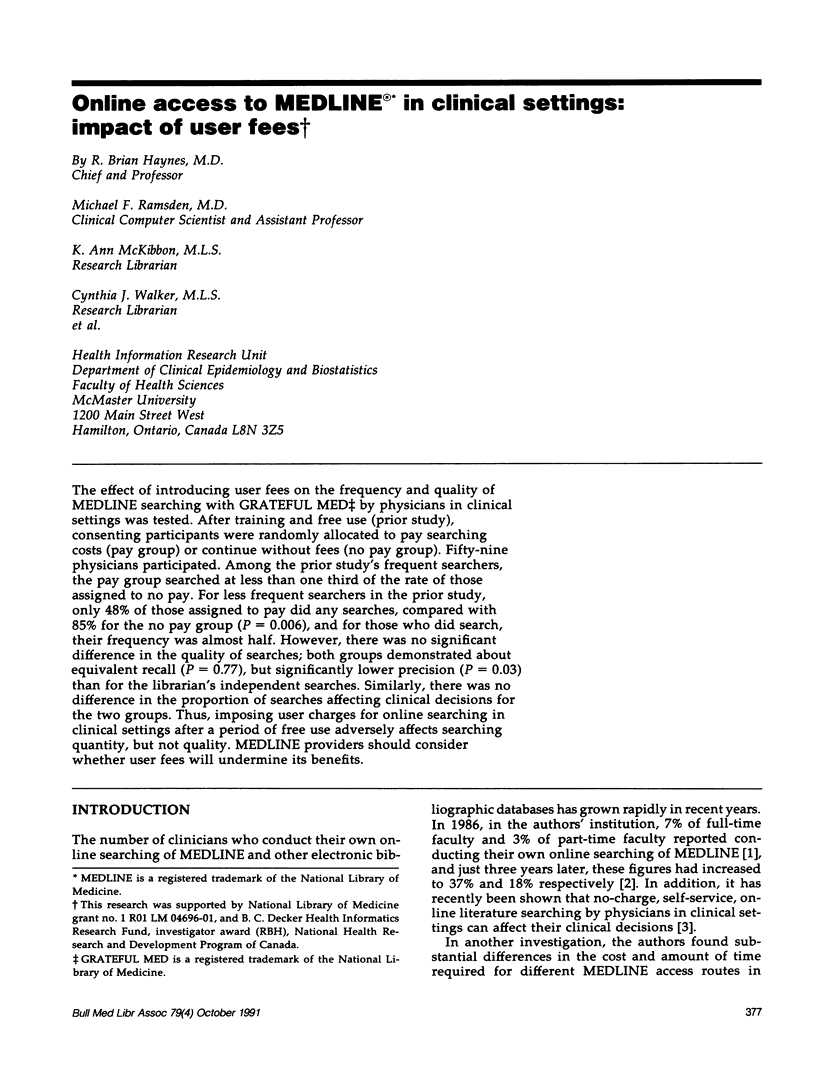
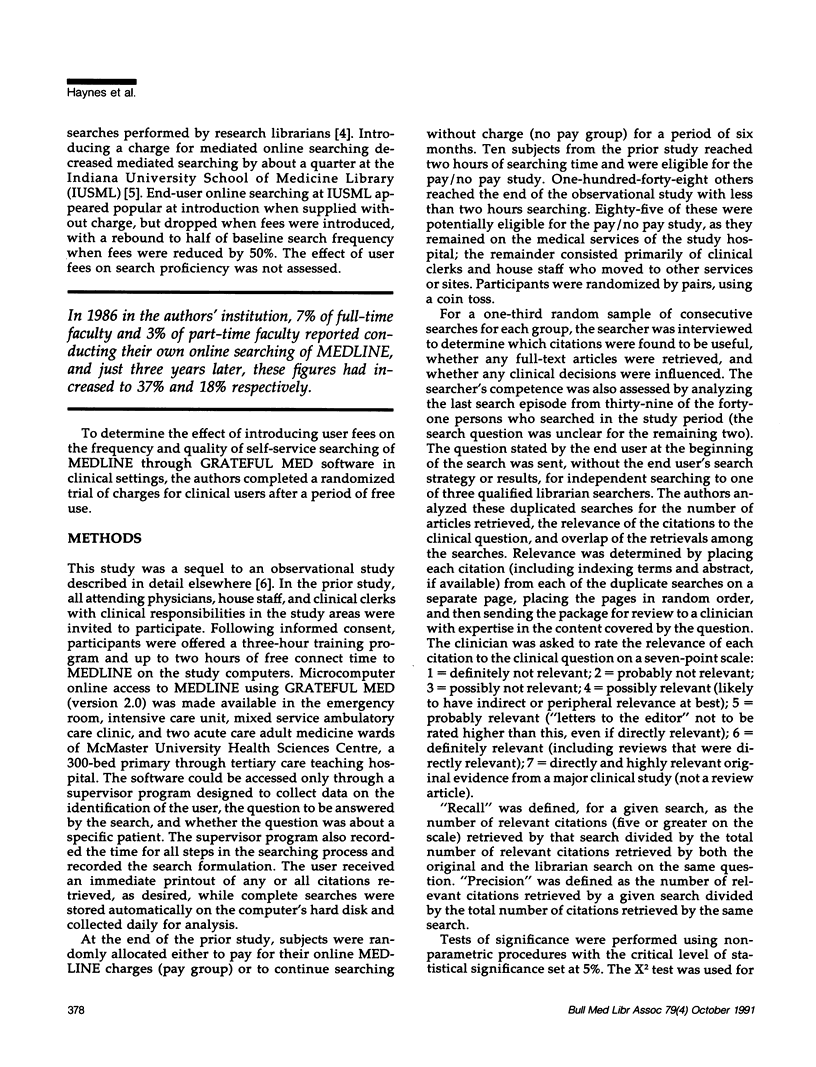
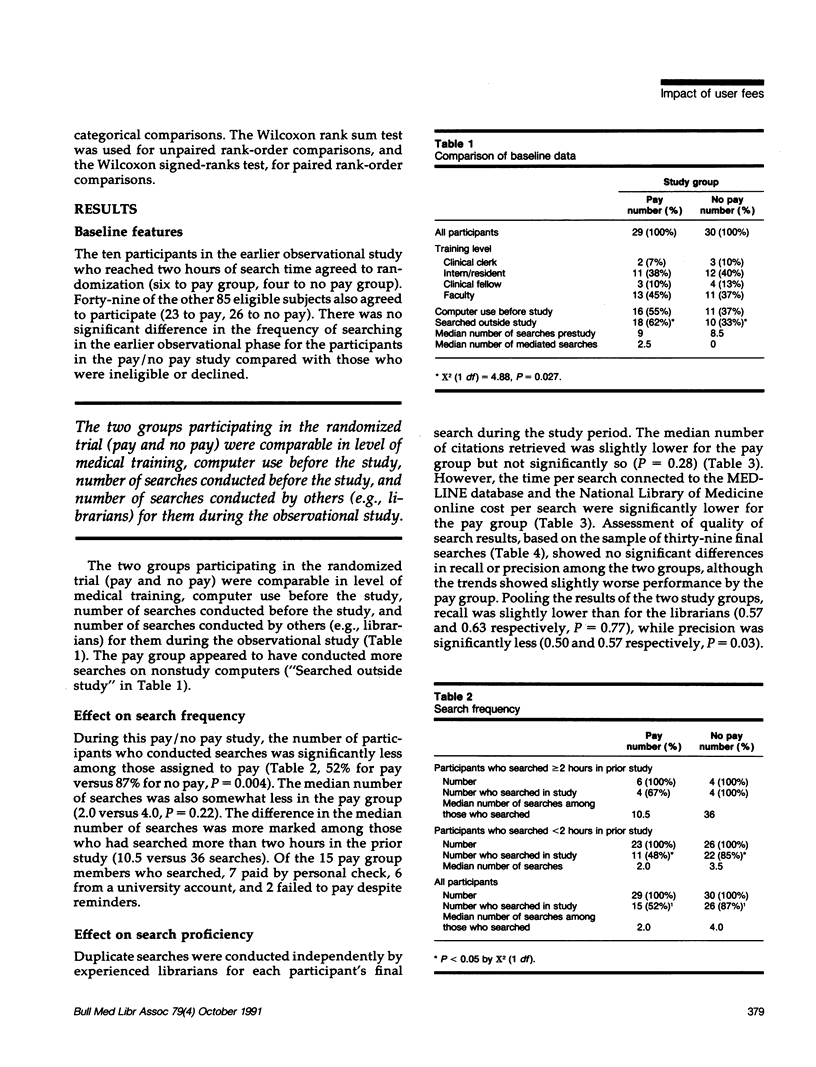
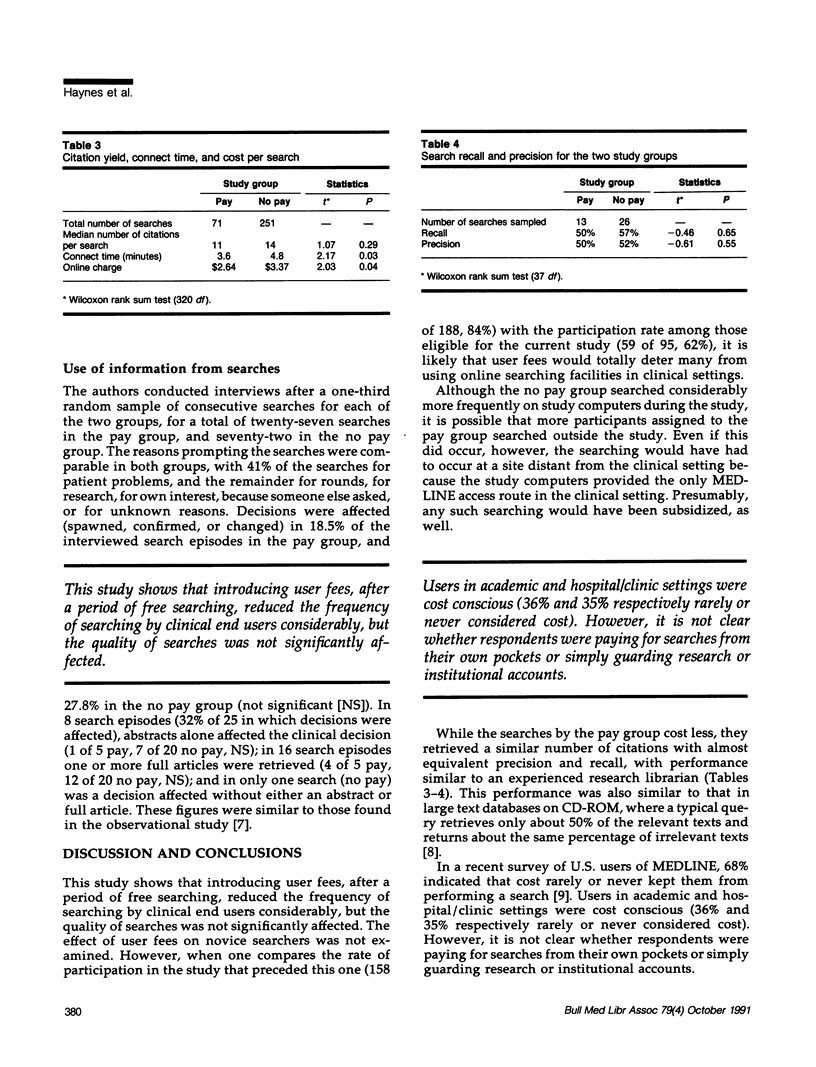
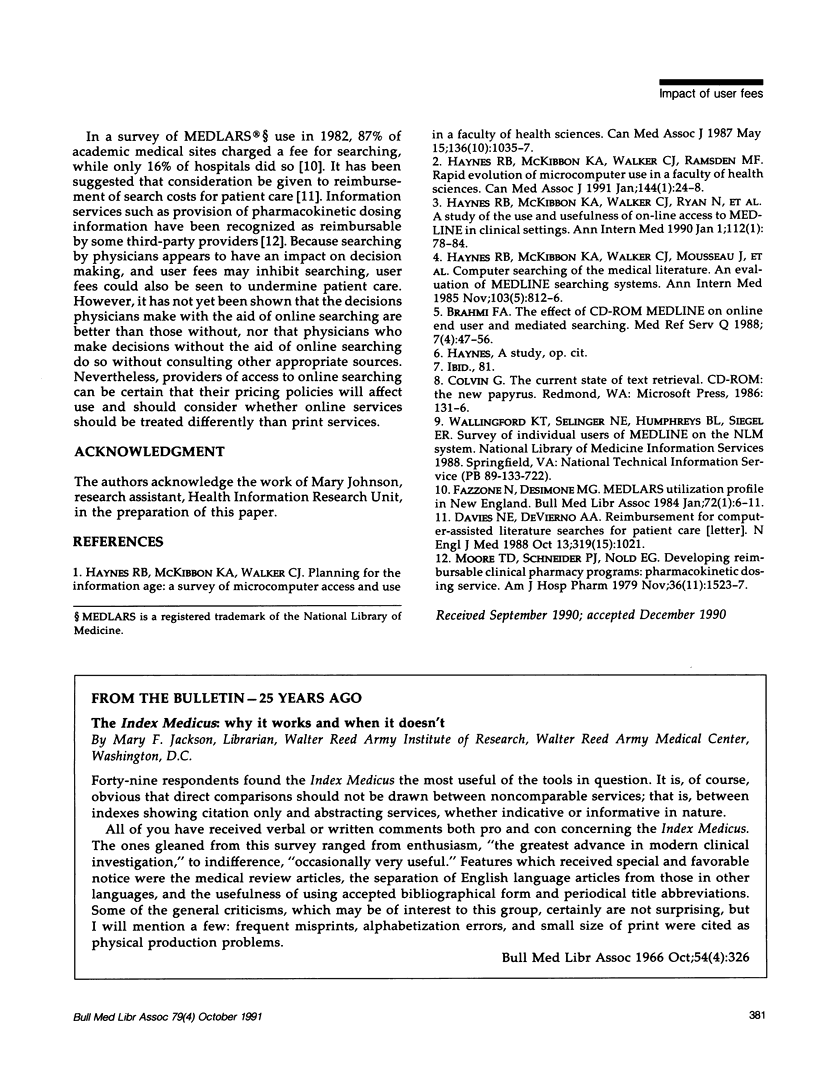
Selected References
These references are in PubMed. This may not be the complete list of references from this article.
- Brahmi F. A. The effect of CD-ROM MEDLINE on online end user and mediated searching. Med Ref Serv Q. 1988;7(4):47–56. doi: 10.1300/j115v07n04_04. [DOI] [PubMed] [Google Scholar]
- Davies N. E., DeVierno A. A. Reimbursement for computer-assisted literature searches for patient care. N Engl J Med. 1988 Oct 13;319(15):1021–1021. doi: 10.1056/NEJM198810133191520. [DOI] [PubMed] [Google Scholar]
- Fazzone N., DeSimone M. G. MEDLARS utilization profile in New England. Bull Med Libr Assoc. 1984 Jan;72(1):6–11. [PMC free article] [PubMed] [Google Scholar]
- Haynes R. B., McKibbon K. A., Walker C. J., Mousseau J., Baker L. M., Fitzgerald D., Guyatt G., Norman G. R. Computer searching of the medical literature. An evaluation of MEDLINE searching systems. Ann Intern Med. 1985 Nov;103(5):812–816. doi: 10.7326/0003-4819-103-5-812. [DOI] [PubMed] [Google Scholar]
- Haynes R. B., McKibbon K. A., Walker C. J. Planning for the information age: a survey of microcomputer use in a faculty of health sciences. CMAJ. 1987 May 15;136(10):1035–1037. [PMC free article] [PubMed] [Google Scholar]
- Haynes R. B., McKibbon K. A., Walker C. J., Ramsden M. F. Rapid evolution of microcomputer use in a faculty of health sciences. CMAJ. 1991 Jan 1;144(1):24–28. [PMC free article] [PubMed] [Google Scholar]
- Haynes R. B., McKibbon K. A., Walker C. J., Ryan N., Fitzgerald D., Ramsden M. F. Online access to MEDLINE in clinical settings. A study of use and usefulness. Ann Intern Med. 1990 Jan 1;112(1):78–84. doi: 10.7326/0003-4819-112-1-78. [DOI] [PubMed] [Google Scholar]
- Moore T. D., Schneider P. J., Nold E. G. Developing reimbursable clinical pharmacy programs: pharmacokinetic dosing service. Am J Hosp Pharm. 1979 Nov;36(11):1523–1527. [PubMed] [Google Scholar]


